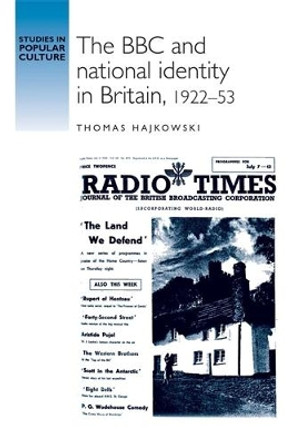This book, first published in 2000, examines the BBC's campaign to raise cultural awareness of British mass audiences in the early days of radio. As a specific case, it focuses on policies and plans behind transmissions of music by composers associated with Arnold Schoenberg's circle between 1922, when the BBC was founded, and spring 1936, when Edward Clark, a former Schoenberg pupil and central figure in BBC music, resigned from the Corporation. This study traces and analyses the BBC's attempts to manipulate critical and public responses to this repertory. The book investigates three interrelated aspects of early BBC history. Policy decisions relating to contemporary music transmissions are examined to determine why precious broadcast time was devoted to this repertory. Early personnel structures are reconstructed to investigate the responsibilities, attitudes and interests of those who influenced music broadcasting. Finally, broadcasts of Second Viennese School works are examined in detail.
This book, first published in 2000, examines the BBC's attempts to manipulate critical and public responses to contemporary music between 1922 and 1936.Reviews'Crammed with ... source material out of the BBC's capacious archives, this book offers a major contribution to the history of music in 20th-century Britain.' BBC Music Magazine
'... [It] not only provides an indispensable addition to existing publications but fills a lacuna in British music history of the twentieth-century. This study will remain a valuable source for scholarly enquiry for many years to come.' Tempo
'It is the most compulsively un-put-downable book I have read for a very long time.' Gramophone
Book InformationISBN 9780521035866
Author Jennifer DoctorFormat Paperback
Page Count 524
Imprint Cambridge University PressPublisher Cambridge University Press
Weight(grams) 823g
Dimensions(mm) 243mm * 168mm * 26mm









